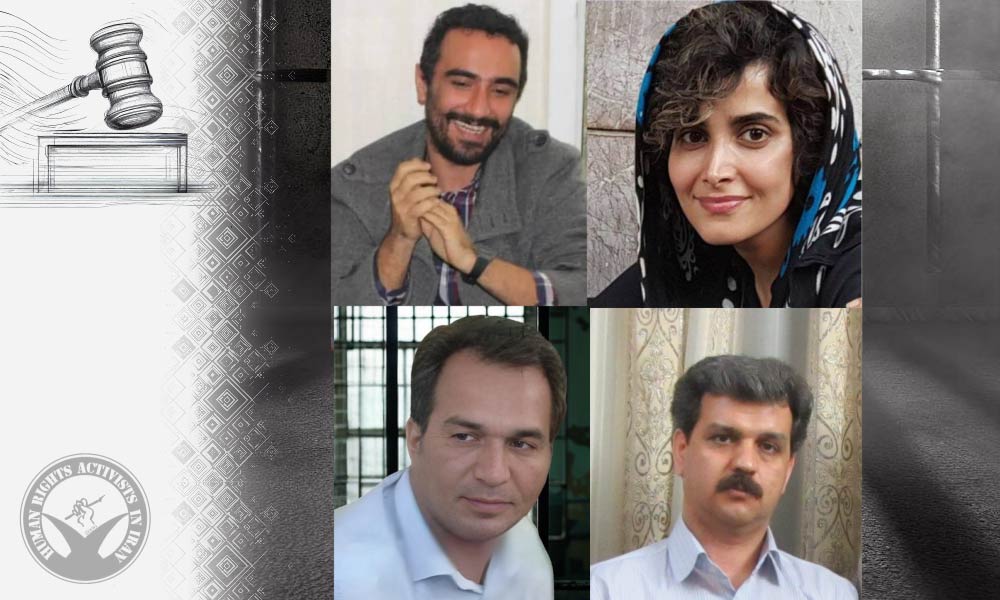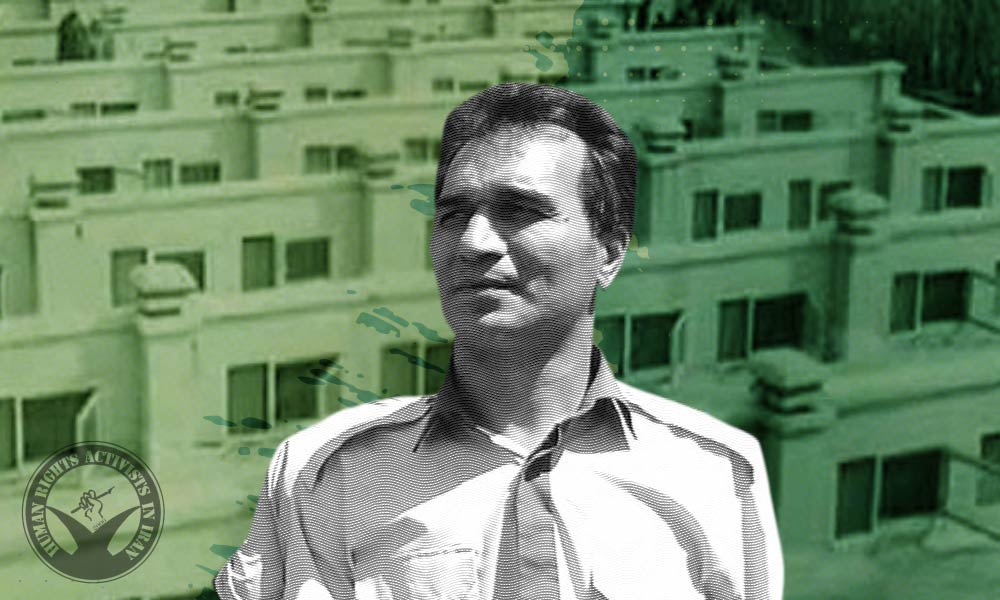HRANA News Agency –Political prisoners in Iran are facing dangerous and deteriorating conditions, including the denial of adequate medical care. This systemic neglect of prisoners’ basic rights, particularly those who are ill, constitutes a blatant violation of human rights and Iran’s domestic laws. The critical situation of these prisoners has once again raised international concerns about human rights violations in Iranian prisons.
Iranian prisons have long been recognized as centers of widespread human rights abuses, especially against political prisoners. These prisoners, often detained for their political and ideological beliefs, are frequently deprived of their basic rights, including access to medical care. This report examines the dire situation of political prisoners in Iran, particularly those who are ill, and analyzes the legal aspects of prisoners’ rights within the framework of Iranian law and the international commitments of the Islamic Republic.
Since the 1979 revolution, the Islamic Republic of Iran has used prisons as tools to suppress dissent. One of the most significant events in modern Iranian history is the mass executions of the summer of 1988, widely described as crimes against humanity. Thousands of political prisoners were executed without fair trials. In 2013, the Canadian Parliament condemned these executions and designated September 1 as a day of solidarity with Iran’s political prisoners, symbolizing international support for those imprisoned for their beliefs and political activities.
Amidst the mass executions of the 1980s, the focus on prisoners’ conditions and rights received less attention. While thousands of prisoners were executed, nearly all of them were deprived of their human rights as prisoners until their execution, including the prohibition of torture, the right to medical care, and respect for human dignity.
Current Situation of Political Prisoners
Iranian prisons remain sites of systematic human rights violations, particularly against political prisoners. Recent reports indicate that many political prisoners face serious health issues and are denied access to adequate medical care. This deprivation is often used as a tool for further pressure and suppression.
The Constitution of the Islamic Republic of Iran explicitly supports the rights of prisoners. Article 38 states that “all forms of torture for extracting confessions or information are forbidden. Coercing someone to testify, confess, or swear an oath is not permitted, and such testimony, confession, or oath shall have no validity or credibility. Violators of this article shall be punished according to the law.”
Furthermore, Article 39 states, “Insulting the dignity of a person who has been arrested, detained, imprisoned, or exiled in accordance with the law, in any form, is prohibited and shall be punishable.” These principles indicate that not only is torture forbidden, but any inhumane treatment of prisoners is also prohibited.
Additionally, the “Executive Regulations of the Organization of Prisons and Security and Corrective Measures of the Country,” with its updated version published in May 2021, sets out detailed regulations regarding prisoners’ health and medical rights. Articles 117 to 160 specifically address the healthcare and medical rights of prisoners. For instance, Article 118 emphasizes the involvement of the sick prisoner’s family in the treatment process. Article 149 refers to the “constant monitoring of prisoners concerning disease,” a right that has clearly been violated in many cases.
However, evidence shows that judicial authorities and prison officials in Iran frequently refuse to implement these laws and regulations. Many sick political prisoners have been deprived of the right to access medical care, and their health conditions are dire. This systematic neglect of prisoners’ health is a clear violation of the Constitution and related executive regulations. Among the latest instances of suspicious prisoner deaths is the ambiguous death of Mohammad Mirmousavi, whose death was announced after being detained in a Lahijan police detention center.
A long list of political prisoners deprived of sufficient medical care includes:
Motaleb Ahmadian, Pariwash Moslemi, Rahele Rahemi-Pour, Gholamhossein Kalbi, Reza Shahabi, Sajad Iman-Nejad, Reza (Gholamreza) Aghdasi, Jamal Ameli, Azar Korvandi Mousa-Zadeh, Marzieh Farsi, Hossein Kooshki-Nejad, Mohammad Rezvani Kashani, Taher Naghavi, Hoora Nikbakht, Sarvenaz Ahmadi, Hassan Saeedi, Meysam Dehban-Zadeh, Hamzeh Savari, Ruhollah Kavousi, Wissam Mazraeh, Alireza Mardasi, Jaber Sakhravi, Abdolemam Zayeri, Morteza Parvin, Anwar Chaleshi, Mohammad Davari, Maryam Jalal Hosseini, Afif Naeimi, Zeinab Jalalian, Afshin Baymani, Reza Salman-Zadeh, Nejat Anwar Hamidi, Narges Mohammadi, Rezvaneh Ahmadkhan-Beigi, Saman Yasin, Farzaneh Ghareh-Hassanlou, and Manouchehr Bakhtiari, Abolhassan Montazer, Vahid Bani-Amerian, and Zartosht Ahmadi Ragheb.
Iran’s International Commitments
The Islamic Republic of Iran is a member of the United Nations and, as a signatory to various international covenants, is committed to upholding human rights. Among these covenants is the “International Covenant on Civil and Political Rights,” which Iran joined in 1966. According to Article 7 of this covenant, “No one shall be subjected to torture or to cruel, inhuman or degrading treatment or punishment.”
Furthermore, the “United Nations Standard Minimum Rules for the Treatment of Prisoners” sets out principles to protect prisoners’ rights, emphasizing the need for appropriate medical care and considering deprivation of such rights as a form of torture.
By joining these covenants and adopting these rules, the Islamic Republic of Iran has committed to respecting prisoners’ rights. However, evidence shows these commitments have been widely violated. Political prisoners in Iran are not only deprived of their basic rights but are also subjected to treatment that clearly contradicts Iran’s international obligations.
Denial of Medical Care: A Form of Torture and Human Rights Violation
The denial of appropriate medical care for political prisoners in Iran can be considered a form of torture and a violation of human rights. These deprivations are not only systematically and deliberately imposed but are also used with political motives to intimidate and suppress opponents. In many cases, prison authorities refuse to provide treatment to prisoners and even prevent their transfer to specialized hospitals when their physical conditions are severe.
These actions constitute blatant violations of international covenants and Iran’s domestic laws. For example, in the case of Afshin Baymani, who suffers from coronary artery disease, the lack of proper treatment and denial of transfer to a hospital can be seen as a violation of his right to life and health.
International Reactions and the Role of the Global Community
International human rights organizations, including the United Nations, have repeatedly expressed concern over the situation of political prisoners in Iran. These organizations have stressed that as a UN member, Iran is obligated to abide by international human rights laws and must adhere to its commitments.
Human Rights Activists have repeatedly called on governments worldwide and international organizations to pressure the Islamic Republic to provide appropriate medical conditions for prisoners. The organization has also urged the international community to take a firm stance against human rights violations in Iran and to take necessary actions to protect prisoners’ rights.
In this context, there have been calls from international organizations, including the European Union, the International Red Cross, and the UN Special Rapporteur on the situation of human rights in Iran, for immediate intervention and the release of political prisoners. These organizations have demanded urgent medical care for sick prisoners and assurance of their access to basic rights.
Suggestions for the International Community
To address this dire situation, the international community must act in a coordinated and decisive manner against human rights violations in Iran. Actions that can be taken include:
- Governments worldwide should exert more pressure on the Islamic Republic of Iran through international forums and human rights organizations to comply with its international obligations.
- Imposing targeted sanctions on Iranian judicial and security officials involved in human rights violations and the torture of prisoners can serve as a tool to pressure the Iranian government.
- The United Nations and other international bodies should establish monitoring mechanisms to oversee the situation of prisoners in Iran and publish periodic reports on their status.
- Media outlets and human rights organizations should work to raise public awareness of the situation of political prisoners in Iran, thereby increasing pressure on Iranian authorities.
The situation of political prisoners in Iran reflects widespread human rights violations by the Islamic Republic. Denial of appropriate treatment, use of torture, and failure to respect prisoners’ basic rights indicate a deep human rights crisis in the country. The international community must act decisively and in coordination to defend these prisoners’ rights and hold Iranian authorities accountable for these crimes.










